- Home
- Bryce Courtenay
Tommo and Hawk
Tommo and Hawk Read online
PENGUIN BOOKS
TOMMO & HAWK
Bryce Courtenay is the bestselling author of The Power of One, Tandia, April Fool’s Day, The Potato Factory, Tommo & Hawk, Jessica, Solomon’s Song, A Recipe for Dreaming, The Family Frying Pan, The Night Country, Smoky Joe’s Café, Four Fires, Matthew Flinders’ Cat, Brother Fish and Whitethorn.
The Power of One is also available in an edition for younger readers, and Jessica has been made into an award-winning television miniseries.
Bryce Courtenay lives in Sydney, New South Wales.
Further information about the author can be found at www.brycecourtenay.com
BOOKS BY BRYCE COURTENAY
The Power of One
Tandia
April Fool’s Day
A Recipe for Dreaming
The Family Frying Pan
The Night Country
Jessica
Smoky Joe’s Café
Four Fires
Matthew Flinders’ Cat
Brother Fish
Whitethorn
THE AUSTRALIAN TRILOGY
The Potato Factory
Tommo & Hawk
Solomon’s Song
Also available in one volume,
as The Australian Trilogy
Bryce Courtenay
TOMMO & HAWK
PENGUIN BOOKS
PENGUIN BOOKS
Published by the Penguin Group
Penguin Group (Australia)
250 Camberwell Road, Camberwell Victoria 3124, Australia
(a division of Pearson Australia Group Pty Ltd)
Penguin Group (USA) Inc.
375 Hudson Street, New York, New York 10014, USA
Penguin Group (Canada)
90 Eglinton Avenue East, Suite 700, Toronto, Ontario, Canada M4P 2Y3
(a division of Pearson Penguin Canada Inc.)
Penguin Books Ltd
80 Strand, London WC2R 0RL, England
Penguin Ireland
25 St Stephen’s Green, Dublin 2, Ireland
(a division of Penguin Books Ltd)
Penguin Books India Pvt Ltd
11 Community Centre, Panchsheel Park New Delhi – 110 017, India
Penguin group (NZ)
Cnr Airborne and Rosedale Roads, Albany, Auckland, New Zealand
(a division of Pearson New Zealand Ltd)
Penguin Books (South Africa) (Pty) Ltd
24 Sturdee Avenue, Rosebank, Johannesburg 2196, South Africa
Penguin Books Ltd, Registered Offices: 80 Strand, London WC2R 0RL, England
First published by Penguin Books Australia Ltd, 1997
This edition published by Penguin Group (Australia), 2006
Copyright © Bryce Courtenay 1997, 2006
The moral right of the author has been asserted
All rights reserved. Without limiting the rights under copyright reserved above, no part of this publication may be reproduced, stored in or introduced into a retrieval system, or transmitted, in any form or by any means (electronic, mechanical, photocopying, recording or otherwise), without the prior written permission of both the copyright owner and the above publisher of this book.
ISBN: 9780857960207
www.penguin.com.au
For Alex and Brenda Hamill
ACKNOWLEDGEMENTS
To Benita, my wife, who is first to read my work and who endured, mostly with good humour, the painful process involved in a partner writing a work of fiction.
Owen Denmeade, who helped in a thousand ways with small and large chores. Margaret Gee, who constantly combed my manuscript for errors of form and function and always improved upon it. Bruce Gee, who undertook the task of major researcher and never failed to find both the important facts and wonderful tidbits that give a novel both veracity and colour. Christine Gee, my indefatigable publicist.
Adrian Collette, Adam Courtenay, Tony Crosby, Alex Hamill, Alan Jacobs, Sylvia Manning, Lisa Mills, Essie Moses, Phyllis Pike, Roger Rigby, Sardine, Dr John Tooth and Dr Brent Waters. Professor Terry Sturm at the University of Auckland, who read those sections dealing with the Maori Wars. The Tasmanian Museum and Art Gallery, the State Library of Tasmania, the Sydney Maritime Museum, and the inestimable State Library of New South Wales and in particular the staff of the Mitchell and Dixson Libraries for their unstinting and generous help. My abiding gratitude to the hundreds of past writers of books, newspapers, magazines and pamphlets from whom I learned both narrative form and fact and whose prior work made mine possible.
To my publishers, Bob Sessions and Julie Gibbs at Penguin Books Australia, who never flagged in their efforts to help me meet my deadline. Finally, my editor Clare Forster who, together with editor Laurie Critchley, worked long and hard to take my words and make them sing. What a joy it has been to work with you all.
I have a boy who cannot speak and a boy who will not speak.
Both I love with all my heart but do not know how to keep.
Mary Abacus
CONTENTS
BOOK ONE
BOOK TWO
BOOK THREE
BOOK FOUR
BOOK ONE
Chapter One
TOMMO
Hobart Town
July 1856
It ain’t long now before Hawk comes to fetch me, to scrape his brother off the floor of Brodie’s sly grog shop.
Funny that, when you’re mostly scared in life you feel things brave folk don’t bother to feel. I know he’s coming. I can hear his big footsteps coming down the hill two mile away. When you’ve been listening to fear as long as me, you can’t never be fooled. Fear is always the little brat in you, ears pricked, heart thumpin’, listening to what can’t be heard, knowing what’s gunna happen by the way your arsehole is puckering like a rabbit’s nose. No matter what you learns in life, the fear in you never grows up.
That first fear, when you was seven and stolen from your family and took into the wilderness, that first big begetting of fear in your life becomes a part of every fear you has ever afterwards.
Fear builds up, like rust in a metal water pipe. Its beginning, its first trickle, is always about being alone. Not loneliness, but being alone and helpless, with no one what cares, no one what gives a fig, what will flick an eyelid if you lives or dies. You’re a small creature alone what has no defences of its own and so is the natural prey to a world full o’ hungry mongrels.
It don’t matter if you grows to be big and strong, and cunning as a shithouse rat. It don’t matter if you can defend yourself with fisticuffs or use an axe or knife like nobody’s business. Fear don’t take notice of them things, it just don’t grow up and start being brave. It stays with you, so you can’t put faith in nothin’ and nobody. If you can’t trust, then it stands to reason you can’t love, ‘cause if you does, you’ll become some mongrel’s prey.
There is always someone watching you in the tall timbers. You learn to feel him like an itch under your skin. Like a chill breath on the back of your neck. You knows in your thumping heart it’s a wild man comin’ for you, a mongrel with harm in his heart. You can’t see nothing, but he’s lurking, creeping, minding his feet so his steps don’t warn you. He’s moving closer, one foot raised like a kangaroo dog, but you don’t know where or which way to run. The wind roars in the treetops like waves crashing against the shore, killing the small sounds, the snap of myrtle thicket, the sudden flutter of a bird, all the things you depends on to catch him out.
You pull the air through your nose, sniff deep, testing for the sour smell of a grown man, but the early morning sun’s sucked the perfume from the eucalypt, the sassafras and King Billy pine, filling the frosty air so you can’t smell nothing behind the sweetness at the end of your nostrils.
You begin to tremble. You kno
w what’s coming. If he gets you he’ll bugger you. Put his thumb and finger to his nose and snort his snot onto your back as he swives his cock into your arse. Then he’ll hold you pinned, and whistle over to his mates to come. If you struggle, he’ll pull back your head, twist and snap your scrawny neck like you was a new-born pup. Other mongrels comes over, charging through the undergrowth, brushing aside the fern, boots cracking twigs, urgently pulling down their breeches, tripping as their pants fall to their ankles, laughing. You stretched over a felled Huon log what has its bark ripped off, its lemon-yellow naked, just like you, your face kissing the damp, dark, musty earth.
‘Eh you, dog shit!’
‘Yes, boss?’ Your teeth chattering.
‘Ya ain’t seen nothin’ now, ya hear?’
‘No, nothin’, boss! I ain’t seen nothin’, no one!’
‘Wha’ are you then?’
‘Dog shit, boss.’
‘Louder! Say’t loud, boy!’
‘DOG SHIT!’
‘Tha’s better. You’ll say naught t’no bugger, yer understand? Tell and we’ll come agin, kill ya, cut yer froat ear t’ear!’
‘Yes, boss.’
Then the crash of myrtle twigs as they melt into the trees, ghosts in the morning mist. You alone again in the forest. The bellbirds begin to call again, the sound of an axe striking deeper into the bush. You snivels a while, and try to wipe away the blood from your arse with a bunch of green leaves, then you scrapes the muck from your back and what’s running down your legs with a strip of bark, ashamed. Nobody you can tell what cares. You shit bright red for a month after.
That’s the all of it. It never changes, one fear begets another, but it’s always the same fear. The same small brat in you facing the same mongrels. Once fear gets a hold of you, you can’t trust no one no more, not even yourself, ‘cause you know they be right— all you be is dog shit, and all they wants to do is bugger you so you never forgets what you is.
I got to drink down fast, get a few into me. Brother Hawk don’t countenance me staying on no matter how much I plead at him to let me be. I’m not afraid of Hawk, just of Hawk coming. I’m afraid of Mary. Of Sunday dinner. Of meself.
‘Mr Brodie, sir! Another snort o’ acquadine!’ I hold up me last shilling, won yesterday at euchre. Got to find a game today, but it ain’t so easy on the Sabbath. ‘Ere!’ I twist the silver coin to catch the lamplight. ‘I got the money, now quick, Mr Brodie, if you please!’
Brodie shuffles over, sniffing, stepping over bodies, spilling some of me precious tot. He grins toothless and puts the little glass down. ‘There ya go, Tommo.’ He grabs up me shilling in dirty woollen mittens what’s got no fingers. Then he holds up sixpence change he has ready in his other hand. ‘Shall I fetch t’other half then?’ He twinkles the sixpence.
‘Why not? I got to go soon. Bring it right off, will ya?’ I nods.
Brodie smiles, a smarmy smile on his ugly gob, like he don’t believe me and he makes a fuss of fumbling at the front of his waistcoat, pushing the sixpence back into a greasy pocket, his dirty fingers dancing like spider’s legs over his pot belly.
The acquadine don’t hit as hard as it should. Barely tickles me throat. Bastard’s watered it down, doused the fire in it to make it last longer, though it’s better than the Cape of Good Hope brandy he serves to most of his Sunday drunks. More like Cape of No Bloody Hope, all the good hope in it watered down to make a gallon of misery out of half a pint of trooper’s joy.
Don’t suppose I blames him, human nature being what it is. Fair enough, I reckon, the pubs are closed Sunday, so we’re in his hands, ain’t we? He’s got us drunks all to himself. Brodie milking a few more pennies from the slops of Saturday night’s barrel and charging us double for the privilege. Daresay I’d do the same. Can’t feel too sorry for a Sunday drunk, can ya?
The sun should be well up by now, if it ain’t raining outside. That be Hobart Town all right, sunshine, then rain, snow, hot, cold, calm and blow, all in the course of the same morning. Not that I mind, used to it, the wilderness be mostly rain and wind and bone-snapping cold. It could be nearly noon, though who’d know here in the oil lantern darkness. The shadows be the same now as if it be always midnight in the world.
I comes in early, not much past dawn, with the mist still hanging on the river. Birds just beginning t’ chitter, currawong, kookaburra, green rosella calling and silver gulls wheeling. They be the early risers and the noisy buggers. Then come the little uns, scrub tit, scarlet robin, yellow wattlebird and blue wren, kipping in a bit, then starting to talk with the sun. Tide coming in, slapping, spiffing and spuming on Salamanca beach. I couldn’t sleep no more, even though I were sozzled last night and should’ve been well able. But me restlessness is getting worse. Time to move on. Hawk knows I ain’t gunna stay in Hobart Town now he’s back from England. But he still talks of us joining Mary, of being a proper family again and doing brewery work up at Strickland Falls. ‘It would be our fortune made, Tommo!’ he reckons.
Ha bloody ha! A fortune in me hands would be poured down me throat, or lost at the dogs and horses. Can’t make a copper penny stay long enough in me pocket to even gather warmth.
Hawk’ll be here soon. Silent, bending double to get through the door, a great dark shadow hunched over, his head bumping against the rafters. Him so black the lamplight don’t show nothing but the whites of his eyes, the silver sheen of the scar on his neck, and the shine on his nails where he holds his fingers to his nose. A nigger for me brother though I be as white as one o’ Mary’s best Sunday tablecloths. Hawk be twice my size too though we be born of the same mama. Different from the start, Mary reckons, from the day she set eyes on us, two mewlin’ orphans in a basket. Even more different now. Hawk wouldn’t be caught dead down here if it weren’t for yours truly, even the stink’s too bad for his well-raised nose.
But I don’t smell nothin’ no more. Don’t take no notice. Not even of the farts from the drunks lying at me feet or curled up in the dark corners, snorting bubbles in their spew or seeing things terrifying what ain’t there.
Reckon that’ll happen to me soon enough. A few more years on the grog, then some mongrel like Brodie’ll add too much acid to give a kick to his watered down spirits and that’ll be the end of dear little Tommo. Over I topples, a nicely pickled feed o’ flesh for the waiting worms. Or it’ll be the horrors. I seen it happen to some younger than me, holding their ears and closing their eyes and screaming for the snakes to be took away. You’d think I’d be shitting meself. But I ain’t. Truth be, I’m more scared of Hawk coming to fetch me to Mary’s Sunday roast! More feared about sitting at her clean white tablecloth and chewing through a plate o’ mutton with Mary’s green eyes watching on me, so’s I want to jump up and make for the door and keep running until I don’t feel the disappointment in her eyes no more.
There be so much I’ve forgot in the seven years since I were snatched from Mary’s tender care. Seven years I’ve been in the wilderness, but I never forgot Mary’s white cloth spread on the kitchen table for Sunday dinner. She’d spread it like forgiveness, like whatever we done wrong in the past week was forgiven when we sat ‘round her Sabbath table. Mary’s white tablecloth religion was most accommodating of our weekly wickedness. You’d sit down a sinner and rise up with a full belly and a clear conscience, not a holy word spoken neither.
When I were left to mind Sam Slit’s whisky still beside the river, cold, wet, starving, drunk and alone in a timber getter’s bark hut, I’d recall into my mind Mary’s kitchen of a winter’s Sunday. The same wind churning the river and howling in the Huon pine. I was that wind, battering at Mary’s kitchen door, rattling on the glazed windows of her cottage. And then, when it couldn’t find no way to come into the warmth, howling its protest high up in the eaves. ‘Wind off the Antarctic sea, the banshees howling be the widow ghosts o’ dead sailors,’ Ikey, picking his teeth with his pinkie nail, would say when it got particular furious outside.
Inside Mary’s warm
kitchen there were no need to heed the rain beating on the steamed-up window glass like a boy’s tin drum. We was seated there at her Sunday table, snug as a bug in a rug. Mary at the head o’ the table, Hawk and me at either side, and at the end, tucking in like there was no tomorrow, Ikey Solomon, what handed us over to Mary’s care when we was born. It were Ikey what give us his name too though he weren’t our papa nor Mary’s husband neither. Ikey died before I found me way back, but he comes to me mind often. When we knew him, he was just Ikey. But before he got nabbed, he were the most high regarded villain in all of London Town. The Prince of Fences they called him, with a finger in every pie. I’ve heard say that he and Mary were in the brothel business together. But Mary be a ticket-of-leave now, and owner of The Potato Factory brewery, and she don’t like much to dwell on the past.
So there we’d sit, a small, strange family. In front of us, on a big white oval plate with a picture of blue willow trees and two Chinamen on a little bridge, were a huge leg of hot roasted mutton. The very best butcher’s hogget, with Mary standing over it, big fork in one hand, knife in t’other, carving onto each tin plate, then pouring on a rich, steaming river of gravy. Little pearl onions glistening and swimming in the bright brown gravy what covered the thick slices o’ tender meat. Mary always putting the same on my plate as Hawk, her full knowing I could never eat all of it, that Hawk would polish off what I left, then eat Ikey’s left-overs and then what meat was still on the bone. It were her way of feeding Hawk while not showing me up to be a runt.
And that’s where I always supposed God would be on a howling winter’s Sunday. He’d be seated at our kitchen table sharing our leg of mutton, with Mary’s best sharp knife and fork in His almighty hands, His holy elbows on the snowy white tablecloth of forgiveness, fork stabbing at great chunks of meat, champing away like nobody’s business. He, Him, the nabob of heaven, there with us ‘stead of presiding over all the God business going on down at St David’s church, where the true merinos, free settlers and lags what should’ve known better be praying and hymn-singing and freezing their bollocks and titties off. Them in church thinking they be earning extra points in heaven for going out in all the flurry and howl of a winter’s blustering morning, and meanwhile God be sitting at our kitchen table all cosy-like, getting a good feed of Mary’s best mutton and enjoying Hisself.

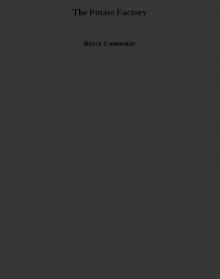 The Potato Factory
The Potato Factory The Power of One
The Power of One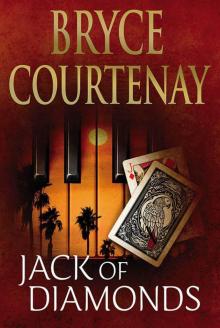 Jack of Diamonds
Jack of Diamonds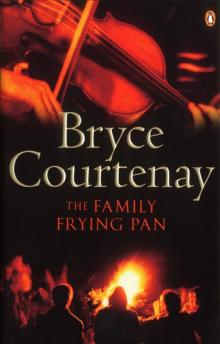 The Family Frying Pan
The Family Frying Pan April Fool's Day
April Fool's Day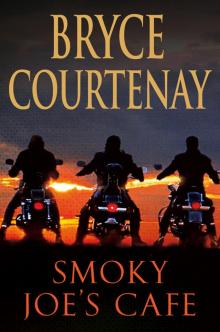 Smoky Joe's Cafe
Smoky Joe's Cafe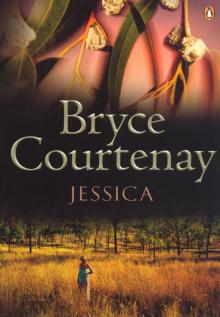 Jessica
Jessica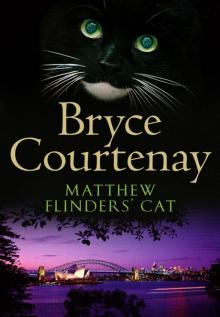 Matthew Flinders' Cat
Matthew Flinders' Cat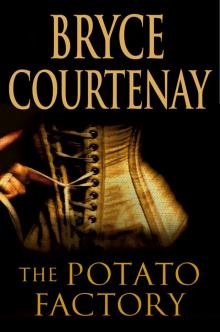 Potato Factory
Potato Factory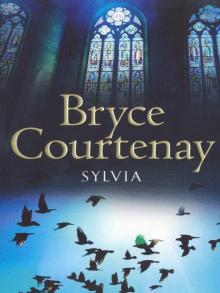 Sylvia
Sylvia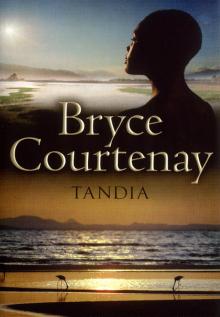 Tandia
Tandia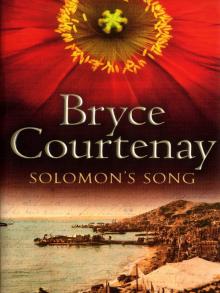 Solomon's Song
Solomon's Song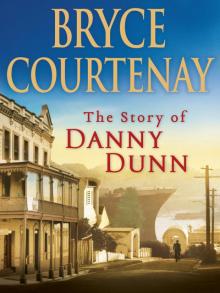 The Story of Danny Dunn
The Story of Danny Dunn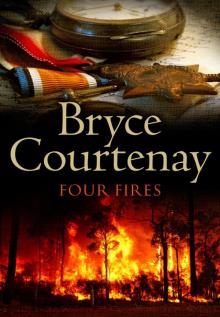 Four Fires
Four Fires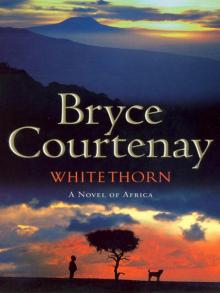 Whitethorn
Whitethorn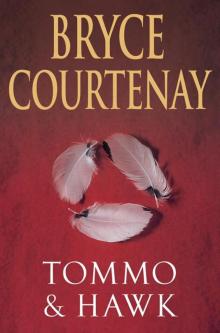 Tommo and Hawk
Tommo and Hawk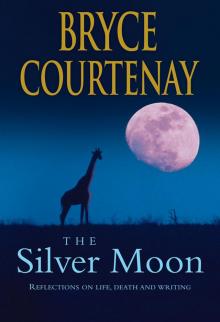 The Silver Moon
The Silver Moon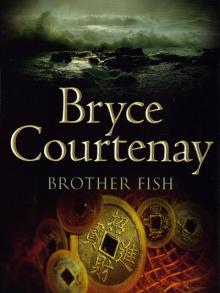 Brother Fish
Brother Fish FORTUNE COOKIE
FORTUNE COOKIE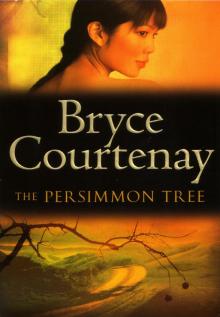 The Persimmon Tree
The Persimmon Tree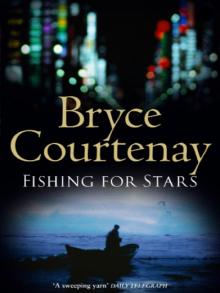 Fishing for Stars
Fishing for Stars